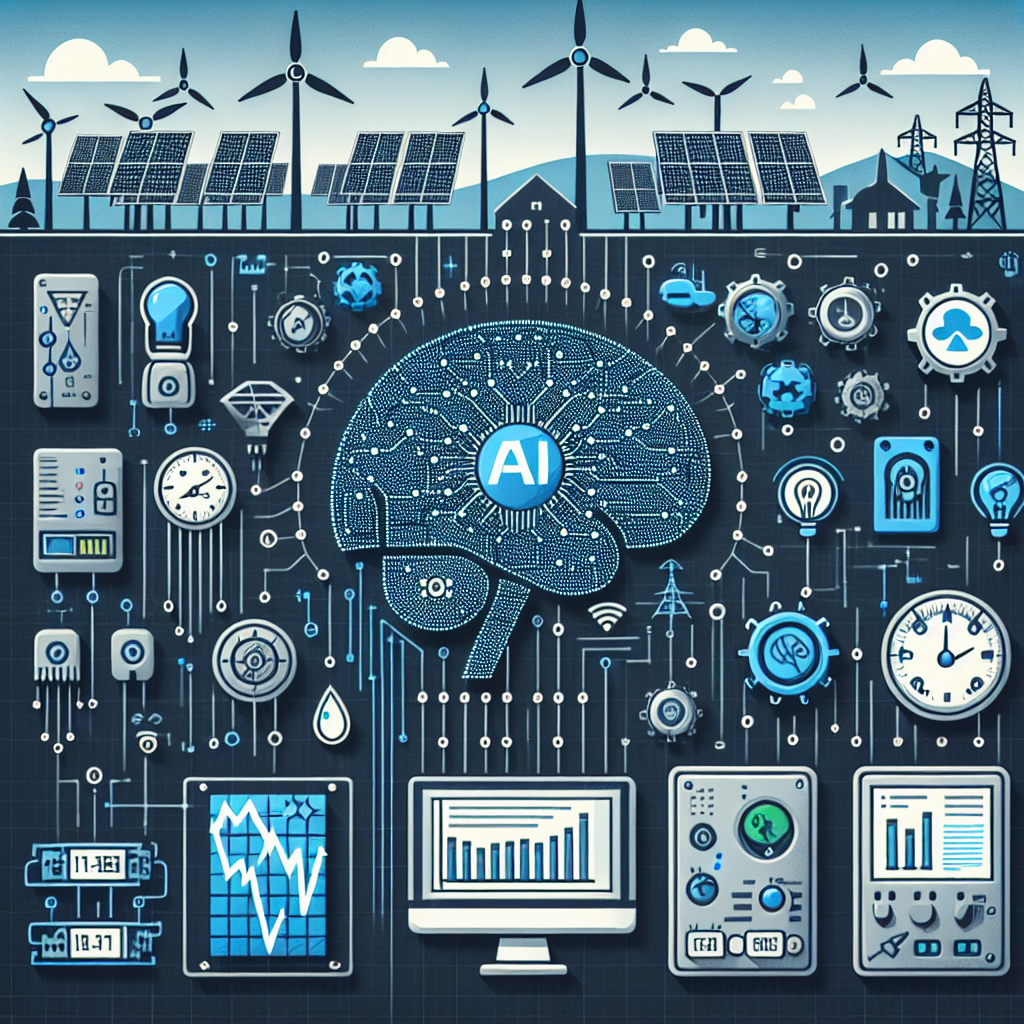In recent years, the demand for renewable energy sources has been steadily increasing as the world strives to reduce carbon emissions and combat climate change. One of the key challenges in the renewable energy sector is the need for real-time monitoring and control of energy production and consumption. This is where Artificial Intelligence (AI) comes in, offering innovative solutions to optimize energy management in renewables.
AI technologies such as machine learning, deep learning, and predictive analytics can be leveraged to monitor and control energy systems in real-time, allowing for more efficient and sustainable energy production. By analyzing large amounts of data from sensors and devices, AI algorithms can identify patterns, predict potential issues, and recommend actions to optimize energy usage.
Real-time energy monitoring and control using AI can be applied in various renewable energy systems, including solar, wind, and hydroelectric power. For example, in solar energy systems, AI can analyze weather data, solar panel performance, and energy consumption patterns to optimize the production and distribution of energy. In wind energy systems, AI can monitor wind speeds, turbine performance, and grid demand to maximize energy production and minimize downtime. In hydroelectric power systems, AI can analyze water flow rates, turbine efficiency, and energy storage levels to ensure optimal energy generation.
One of the key benefits of leveraging AI for real-time energy monitoring and control in renewables is the ability to reduce energy costs and increase energy efficiency. By continuously monitoring energy systems and making real-time adjustments, AI can help optimize energy usage, reduce waste, and lower operational costs. This can lead to significant savings for renewable energy producers and consumers, as well as contribute to a more sustainable energy future.
Another advantage of using AI for real-time energy monitoring and control in renewables is the ability to improve system reliability and performance. By analyzing data in real-time, AI algorithms can detect potential issues before they escalate, allowing for proactive maintenance and troubleshooting. This can help prevent downtime, reduce equipment failures, and improve overall system performance, leading to more reliable and efficient renewable energy systems.
Furthermore, AI can help optimize energy storage and distribution in renewables by predicting energy demand, managing energy storage levels, and coordinating energy distribution. By analyzing historical data and real-time information, AI algorithms can optimize energy storage and distribution strategies to ensure a stable and reliable energy supply. This can help address the intermittent nature of renewable energy sources such as solar and wind power, and improve the overall reliability of renewable energy systems.
In addition to energy monitoring and control, AI can also be used for energy forecasting and planning in renewables. By analyzing historical data, weather patterns, and energy consumption trends, AI algorithms can predict future energy demand and supply, helping energy producers and consumers better plan for energy production and consumption. This can lead to more efficient energy management, reduced costs, and improved sustainability in the renewable energy sector.
Overall, leveraging AI for real-time energy monitoring and control in renewables offers numerous benefits, including cost savings, improved system reliability, and optimized energy storage and distribution. By harnessing the power of AI technologies, renewable energy systems can be more efficient, sustainable, and reliable, contributing to a greener and cleaner energy future.
FAQs:
Q: How does AI help optimize energy production in renewables?
A: AI technologies such as machine learning and predictive analytics can analyze data from sensors and devices to optimize energy production in renewables. By identifying patterns, predicting potential issues, and recommending actions, AI can help maximize energy production and minimize downtime.
Q: Can AI help reduce energy costs in renewables?
A: Yes, AI can help reduce energy costs in renewables by optimizing energy usage, reducing waste, and lowering operational costs. By continuously monitoring energy systems and making real-time adjustments, AI can help lower energy costs for producers and consumers.
Q: How does AI improve system reliability in renewables?
A: AI improves system reliability in renewables by analyzing data in real-time to detect potential issues before they escalate. By enabling proactive maintenance and troubleshooting, AI can help prevent downtime, reduce equipment failures, and improve overall system performance.
Q: What are the benefits of using AI for energy forecasting and planning in renewables?
A: AI can help predict future energy demand and supply in renewables, aiding in better planning for energy production and consumption. By analyzing historical data, weather patterns, and energy consumption trends, AI can optimize energy management, reduce costs, and improve sustainability in the renewable energy sector.

